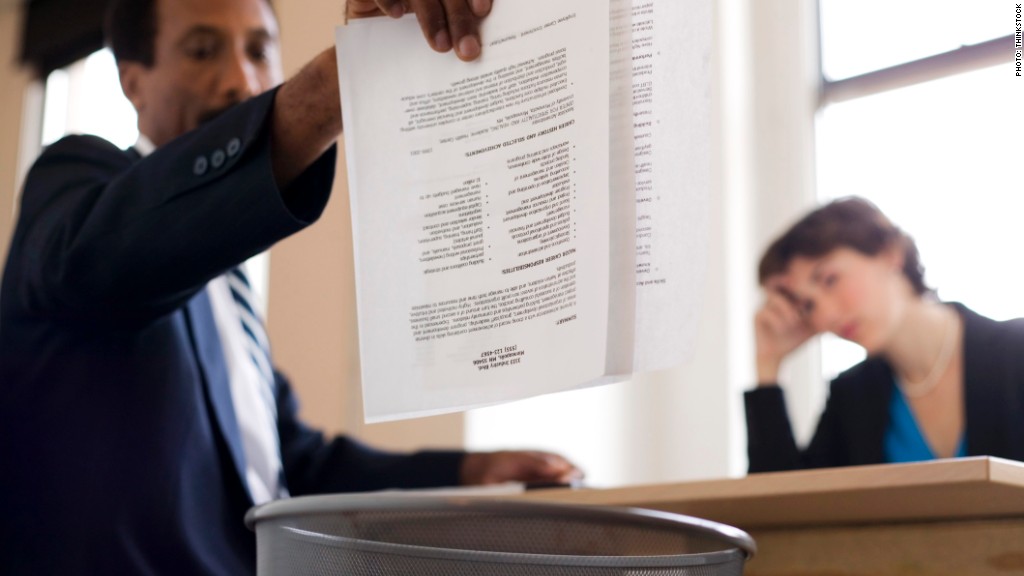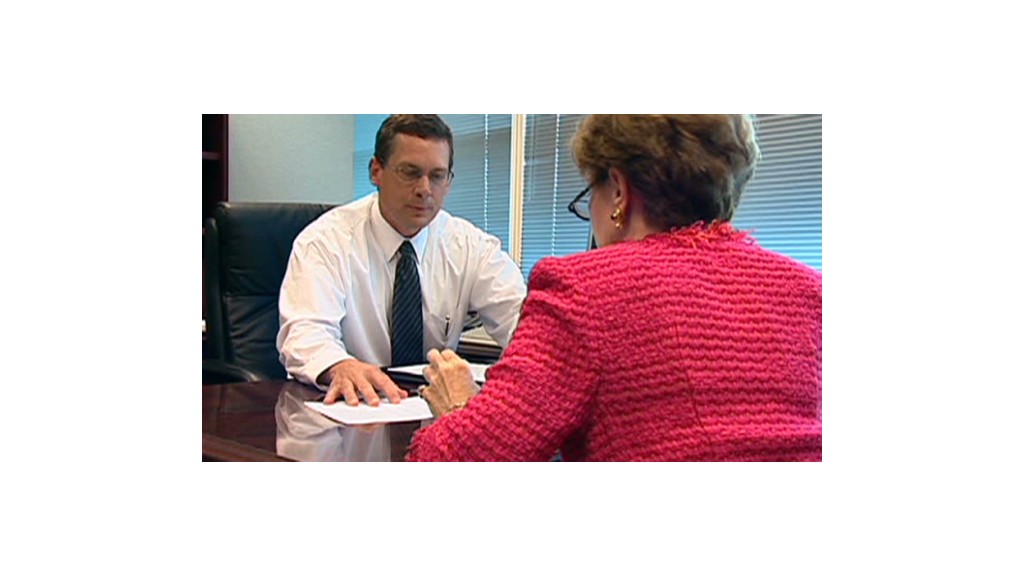
Employer credit checks are preventing the nation's hardest hit job seekers from entering the workforce, a new study shows.
One in four unemployed Americans have been required to go through a credit check when applying for a job, and one in ten have been denied jobs due to information in their credit report, according to a survey by liberal think-tank Demos of about 1,000 low- and middle-income households with credit card debt.
"Employer credit checks are common and they're keeping people from getting jobs," said Amy Traub, Demos senior policy analyst and author of the report.
While people tend to think credit checks are only conducted for senior level positions, the study found they are often used for entry-level, low-paying positions as well -- even for jobs like delivery drivers and frozen yogurt servers.
Bad credit is often a result of unemployment and the loss of health insurance, which makes it difficult for people to keep up with the bills, Demos found. Another common cause of poor credit is medical debt, which only gets harder to manage when compounded by unemployment.
Related: Millions of credit reports have errors
"These factors reflect the poor economy and personal misfortune and have little relationship with how well a job applicant would perform at work," the report states.
Minorities are also disproportionately impacted by employer credit checks, Demos found. On average, African-American and Latino households have worse credit scores than white households.
Demos said this can be partly attributed to higher unemployment in these communities. Unemployment among African-Americans stood at 14% at the end of 2012, while the Hispanic unemployment rate stood at nearly 10% -- much higher than the 6% rate for white Americans, according to the Economic Policy Institute.
Related: Transgender job seekers face uphill battle
Other respondents in Demos' survey cited errors on their credit reports as hurting their credit. An FTC study recently reported that one in five consumers has a credit report error.
And because employers aren't able to view credit scores -- just the information contained in a report like debts, payment history and bankruptcies -- their evaluation of an applicant's creditworthiness is completely subjective, said Traub.
Many employers use credit checks to help prevent theft and embezzlement and to avoid legal repercussions from "negligent hiring," according to a 2012 survey by the Society for Human Resources Management. They are also used to screen applicants for positions that carry financial responsibilities.
But most employers who use credit checks say it's not the most important factor in hiring decisions. About 34% of employers use credit checks on some job applicants and 13% conduct credit checks on all applicants, according to the SHRM's survey. Only 14% cite a credit check as the most important factor in a hiring decision, compared to 87% who said previous work experience is most important.

Under current regulations, employers aren't allowed to run credit checks without an applicant's permission, and they are also required to notify applicants if they decide not to hire them due to the results. The applicant is then given a window of time to start disputing any incorrect information on their credit report before the employer can take adverse action.
These rules are often difficult to enforce, since employers can always cite other reasons for declining a job applicant. And while more states are adding restrictions for the use of credit checks by employers, companies are still allowed by federal law to reject an applicant based on information in their credit report, and they can reject any applicant who refuses to undergo a credit check.
Related: Great credit score? Think again
To prevent credit checks from unfairly barring applicants from jobs, Demos recommended that the Consumer Financial Protection Bureau and other federal agencies require credit reporting agencies to remove medical debt from credit reports, as well as any disputed information until it is resolved. They also proposed making the process of disputing errors easier for consumers.
Meanwhile, Tennessee Democratic Representative Steve Cohen is sponsoring the Equal Employment for All Act, which would prohibit most employers from using credit checks in hiring or firing decisions.
"When employers use credit checks, finding a job can almost be impossible," said Cohen. "[This is a] growing trend and a dangerous one."
